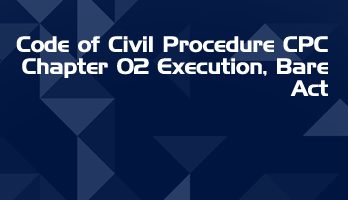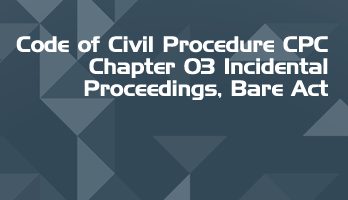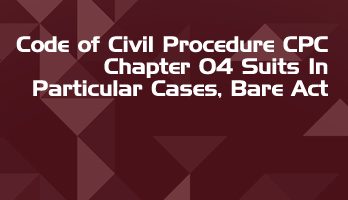A 'Bare act' is the actual legislation passed by the Parliament of India. Generally, an act sets out the high level legal and policy principles applicable to the subject matter of the law.
Most acts are accompanied by 'subsidiary legislation' such as rules, regulations, notifications and orders; which address the actual implementation detail of the act.
Free Full Course Available on LawMint's YouTube Channel
How to Land Your Dream LLB Internship in a Top Law Firm
- Part 1 - Introduction
- Part 2 - Internship Planning
- Part 3 - Internship Research
- Part 4 - Building Your Profile
- Part 5 - The Email
- Part 6 - The Resume
- Part 7 - The Cover Letter
- Part 8 - The Interview
- Part 9 - Self Development
Practical and comprehensive course, with real examples and step-by-step analysis of the complete internship application process. Check out LawMint's YouTube channel now!
Code of Criminal Procedure, 1973
Chapter 4 – Powers Of Superior Officers Of Police
Section 36 A – Powers of superior officers of police
Police officers superior in rank to an officer in charge of a police station may exercise the same powers, throughout the local area to which they are appointed, as may be exercised by such officer within the limits of his station.
B – Aid To The Magistrates And Police
Section 37 – Public when to assist Magistrates and police
Every person is bound to assist a Magistrate or police officer reasonably demanding his aid –
- in the taking or preventing the escape of any other person whom such Magistrate or police officer is authorised to arrest; or
- in the prevention or suppression of a breach of the peace; or
- in the prevention of any injury attempted to be committed to any railway, canal, telegraph or public property.
Section 38 – Aid to person other than police officer, executing warrant
When a warrant is directed to a person other than a police officer, any person may aid in the execution of such warrant, if the person to whom the warrant is directed be near at hand and acting in the execution of the warrant.
Section 39 – Public to give information of certain offences
- Every person, aware of the Commission of, or of the intention of any other person to commit, any offence punishable under any of the following sections of the Indian Penal Code (45 of 1860), namely –
- sections 121 to 126, both inclusive, and section 130 (that is to say offences against the state specified in Chapter VI of the said Code);
- sections 143, 144, 145, 147 and 148 (that is to say, offences against the public tranquillity specified in Chapter VIII of the said Code);
- sections 161 to 165 A, both inclusive (that is to say, offences relating to illegal gratification);
- sections 272 to 278, both inclusive (that is to say, offences relating to adulteration of food and drugs, etc.);
- sections 302, 303 and 304 (that is to say, offences affecting life); va. section 364 A (that is to say, offence relating to kidnapping for ransom, etc.);
- section 382 (that is to say, offence of theft after preparation made for causing death, hurt or restraint in order to the committing of the theft);
- sections 392 to 399, both inclusive, and section 402 (that is to say, offences of robbery and dacoity);
- section 409 (that is to say, offence relating to criminal breach of trust by public servant, etc.);
- sections 431 to 439, both inclusive (that is to say, offence of mischief against property);
- sections 449 and 450 (that is to say, offence of house – trespass);
- sections 456 to 460, both inclusive (that is to say, offences of lurking house – trespass); and
- sections 489A to 489E, both inclusive (that is to say, offences relating to currency notes and bank notes). Shall, in the absence of any reasonable excuse, the burden of proving which excuse shall lie upon the person so aware, forthwith give information to the nearest Magistrate or police officer of such Commission or intention;
- For the purposes of this section, the term “offence” includes any act committed at any place out of India which would constitute an offence if committed in India.
Section 40 – Duty of officers employed in connection with the affairs of a village to make certain report
- Every officer employed in connection with the affairs of a village and every person residing in a village shall forthwith communicate to the nearest Magistrate or to the officer in charge of the nearest police station, whichever is nearer, any information which he may possess respecting –
- the permanent or temporary residence of any notorious receiver or vendor of stolen property in or near such village;
- the resort to any place within, or the passage through, such village of any person whom he knows, or reasonably suspects, to be a thug, robber, escaped convict or proclaimed offender;
- the Commission of, or intention to commit, in or near such village any non – bailable offence or any offence punishable under section 143, section 144, section 145, section 147 or section 148 of the Indian Penal Code (45 of 1860);
- the occurrence in or near such village of any sudden or unnatural death or of any death under suspicious circumstances or the discovery in or near such village of any corpse or part of a corpse, in circumstances which lead to a reasonable suspicion that such a death has occurred or the disappearance from such village of any person in circumstances which lead to a reasonable suspicion that a non – bailable offence has been committed in respect of such person;
- the Commission of, or intention to commit, at any place out of India near such village any act which, if committed in India, would be an offence punishable under any of the following sections of the Indian Penal Code (45 of 1860), namely, sections 231 to 238 (both inclusive), sections 302, 304, 382, 392 to 399 (both inclusive), 402, 435, 436, 449, 457, to 460 (both inclusive), sections 489A, 489B, 489C and 489D;
- any matter likely to affect the maintenance of order of the prevention of crime or the safety of person or property respecting which the District Magistrate by general or special order made with the previous sanction of the State Government, has directed him to communicate information.
- In this section,
- “village” includes village – lands;
- the expression “proclaimed offender” includes any person proclaimed as an offender by any Court or authority in any territory in India to which this code does not extend, in respect of any act which if committed in the territories to which this Code extends, would be an offence punishable under any of the following sections of the Indian Penal Code (45 of 1860), namely, sections 302, 304, 382, 392 to 399 (both inclusive), sections 402, 435, 436, 449, 450 and 457 to 460 (both inclusive);
- the words “officer employed in connection with the affairs of the village” means a member of the panchayat of the village and includes the headman and every officer or other person appointed to perform any function connected with the administration of the village.
Important Central Acts in Regional Languages
Legislative department website also features regional language versions of several important Central Acts.
Free Full Course Available on LawMint's YouTube Channel
How to Land Your Dream LLB Internship in a Top Law Firm
- Part 1 - Introduction
- Part 2 - Internship Planning
- Part 3 - Internship Research
- Part 4 - Building Your Profile
- Part 5 - The Email
- Part 6 - The Resume
- Part 7 - The Cover Letter
- Part 8 - The Interview
- Part 9 - Self Development
Practical and comprehensive course, with real examples and step-by-step analysis of the complete internship application process. Check out LawMint's YouTube channel now!












